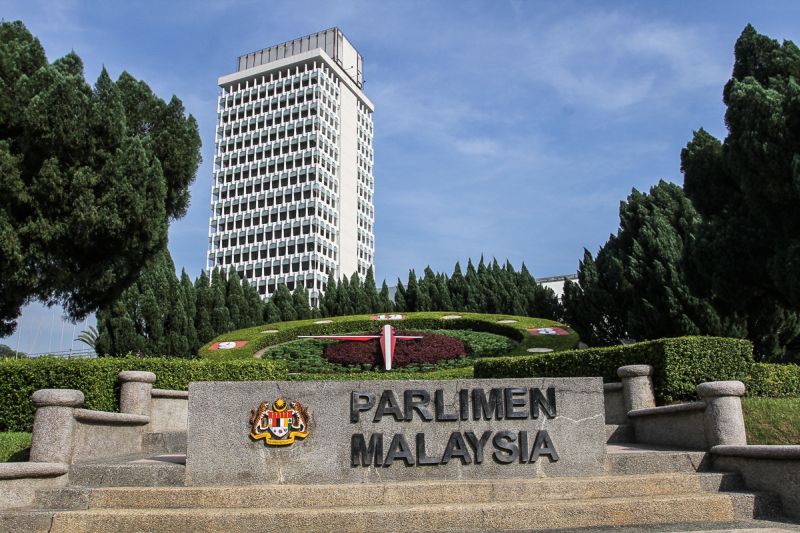JUNE 29 — The state of Emergency expires on August 1. That’s only 32 days away.
But according to reports, de facto Law Minister Takiyuddin Hassan said the government has yet to decide whether Parliament will reconvene physically or under a hybrid model where some MPs will attend virtually.
He also said the government will target the August-September timeline to reconvene Parliament as proposed by Dewan Rakyat speaker Azhar Azizan Harun and Dewan Negara president Rais Yatim.
Takiyuddin added that the notice to convene Parliament will be made after the Emergency expires on August 1 and there will be 28-day notice before the sitting convenes. This perhaps explains why the government is targeting the end of August or early September for Parliament to sit.
Now, unlike previous proclamations of Emergency — three nation-wide and five localised Emergencies — the January 11 Emergency has what is called a sunset clause. It expires on August 1.
If the Emergency lapses without the Emergency Ordinances being laid before both Houses of Parliament, the Emergency Ordinances will cease to have effect. There are five altogether: (1) Emergency (Essential Powers) Ordinance 2021; (2) Emergency (Prevention and Control of Infectious Diseases) (Amendment) Ordinance 2021; Emergency (Essential Powers) (No. 2) Ordinance 2021; Emergency (Essential Powers) (Amendment) Ordinance 2021; and Emergency (Offenders Compulsory Attendance) (Amendment) Ordinance 2021.
All of the above are promulgated pursuant to Clause (2B) of Article 150 of the Federal Constitution to combat the Covid-19 pandemic. Article 150(3) requires the “Proclamation of Emergency and any ordinance promulgated under Clause (2B)” to be laid before both Houses of Parliament.
In the case of Inspector-General of Police & Anor v Lee Kim Hoong [1979], the applicant (Lee) had been detained under the Emergency (Public Order and Prevention of Crime) Ordinance, 1969.
In habeas corpus proceedings taken by the applicant, it was argued that as the said Ordinance had not been laid before Parliament, as required by Article 150(3) of the Federal Constitution, it did not have the force of law.
At the hearing in the High Court the Deputy Public Prosecutor (DPP) conceded that the said Ordinance had not been laid before Parliament and therefore it was held that the detention of the respondent was unlawful and he was released. The High Court judge, Justice Harun, said:
“Now the object of Article 150(3) is for the Yang di-Pertuan Agong to give an account, as it were, to Parliament of all things done by him during their absence. It seems to me that the requirement that Ordinances promulgated during an emergency by the Yang di-Pertuan Agong shall be laid before both Houses of Parliament is a mandatory one and the effect of non-compliance is that the Ordinance will cease to have effect after Parliament had sat. The learned Deputy Public Prosecutor concedes that the 1969 Ordinance was not laid before Parliament. In the event, I am compelled to hold that the Emergency (Public Order and Prevention of Crime) Ordinance, 1969 has ceased to have effect.”
On appeal, the Federal Court allowed additional evidence by affidavit, which showed that the said Ordinance had been laid before the Houses of Parliament and therefore had the force of law. Lord President Suffian, who delivered the judgment of the Court, said:
“As the Ordinance has the force of law, the detention of the applicant was therefore lawful and the learned judge was in error in ordering his release. We therefore allowed the appeal and set aside the learned judge’s order.”
It is important to note, however, that the Federal Court did not hold that Justice Harun erred in his judgment that “the requirement that Ordinances promulgated during an emergency by the Yang di-Pertuan Agong shall be laid before both Houses of Parliament is a mandatory one and the effect of non-compliance is that the Ordinance will cease to have effect after Parliament had sat.”
As matter of fact, the Federal Court’s finding of facts that the Ordinance “has been properly laid before both Houses as is required by the Constitution” and therefore had the force of law reinforces Justice Harun’s decision — that is, it is mandatory for any ordinance promulgated under Article 150(2B) to be laid before both Houses of Parliament. The effect of non-compliance is that the Emergency Ordinance will cease to have the force of law after Parliament has sat.
If the government agrees to the proposal by the two Speakers to have a special sitting of Parliament in early August followed by a hybrid Parliament in late August or the first week of September, the five Emergency Ordinances will cease to have the force of law after the special sitting of Parliament, unless the Ordinances are laid at the special sitting of Parliament. This means both Houses will have to sit in early August.

So, how does the government plan to “compensate” for the loss of legislation necessary to combat the pandemic between the special sitting — if the Ordinances are not laid — and the full sitting of Parliament in late August or early September?
The Emergency is expiring and the government must plan ahead and not react after listening to the people.
* This is the personal opinion of the writer or publication and does not necessarily represent the views of Malay Mail.





















